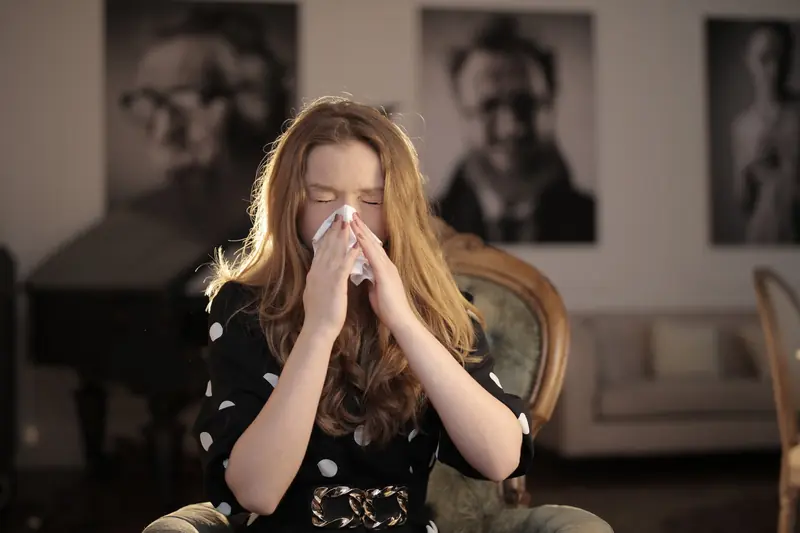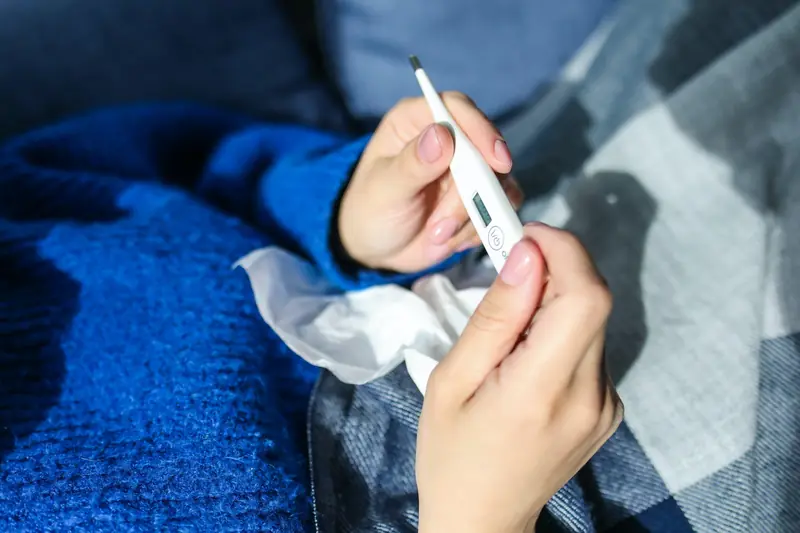
It’s believed that a seasonal illness lasts about a week with treatment and seven days without it. The difference lies in how difficult this time will be for the patient. Let’s dive into the topic with some surprising facts.
Men Have It Harder
Researchers have discovered why men typically find it harder to cope with a cold than their resilient female counterparts. The explanation lies in differences in brain structure. Due to the influence of testosterone, the area of the preoptic nuclei responsible for symptom manifestation is larger in men, which intensifies their discomfort during illness. Men also have more temperature receptors, making the fever associated with colds feel more painful for them.

Runny Nose … for Good
A runny nose should not only be seen as a symptom of a viral infection but also as a protective response to infection: it helps block the virus at the “entry point,” preventing it from traveling further into the lungs. The same mucus in the nose that causes us so much inconvenience is what fights off viruses. The body’s task is to prevent it from drying out. To achieve this, it’s essential to stay hydrated, breathe cool air, and keep the nasal passages moist with mucus-thinning drops.
“Drip Irrigation”
To prevent the mucous membranes from drying out, a saline or oily solution (for example, a pharmacy product like ectericid—a oily liquid with disinfectant properties) can be used. However, it’s not advisable to use antibiotic solutions in the nose. Similarly, decongestant nasal drops (like Nazol or Nafthyzin) should not be used for viral rhinitis; they are intended for treating allergic rhinitis, not infections. Otherwise, after the initial disappearance of mucus, swelling of the mucous membrane will occur, leading to a stuffy nose again.

Breathe Deeply
To “clear” a stuffy nose, try rubbing the wings of your nose in the area of the sinus cavities or pressing your index fingers into the hollow between your collarbones at the base of your neck and massaging this area inward and downward. Rinsing your nose with melted water mixed with sea salt and a salted calendula infusion with two drops of eucalyptus oil can also help. Traditional folk remedies for a stuffy nose include garlic, onion, aloe, and lemon. Soak a cotton ball in juice and place it in each nostril for 10 minutes, repeating the procedure three times a day for three days. Additionally, inserting cotton swabs dipped in honey into the nostrils can provide relief within minutes.
Fight Fire with Fire
As paradoxical as it may sound, you can treat a cold with… cold. When experiencing a fever, it’s important for the body to sweat and lose heat. The patient needs hydration and cool air. However, avoid using wet cold compresses, as they can cause skin blood vessel spasms. To prevent this, combine cool air with warm clothing.

Moderation is Key
Doctors do not recommend excessive bathing when you have a cold: hygiene fanaticism can lower the body’s resistance to infections. An overly clean environment can also weaken the immune system, as it prevents the body from building defenses. Excessive physical activity can similarly reduce immunity. People who are constantly cold or undernourished also experience weakened resistance to illness. Chronic stress harms the immune system, while short-term stress situations can actually stimulate immunity and protect against diseases.
So, eliminate risk factors from your life and stay healthy!
